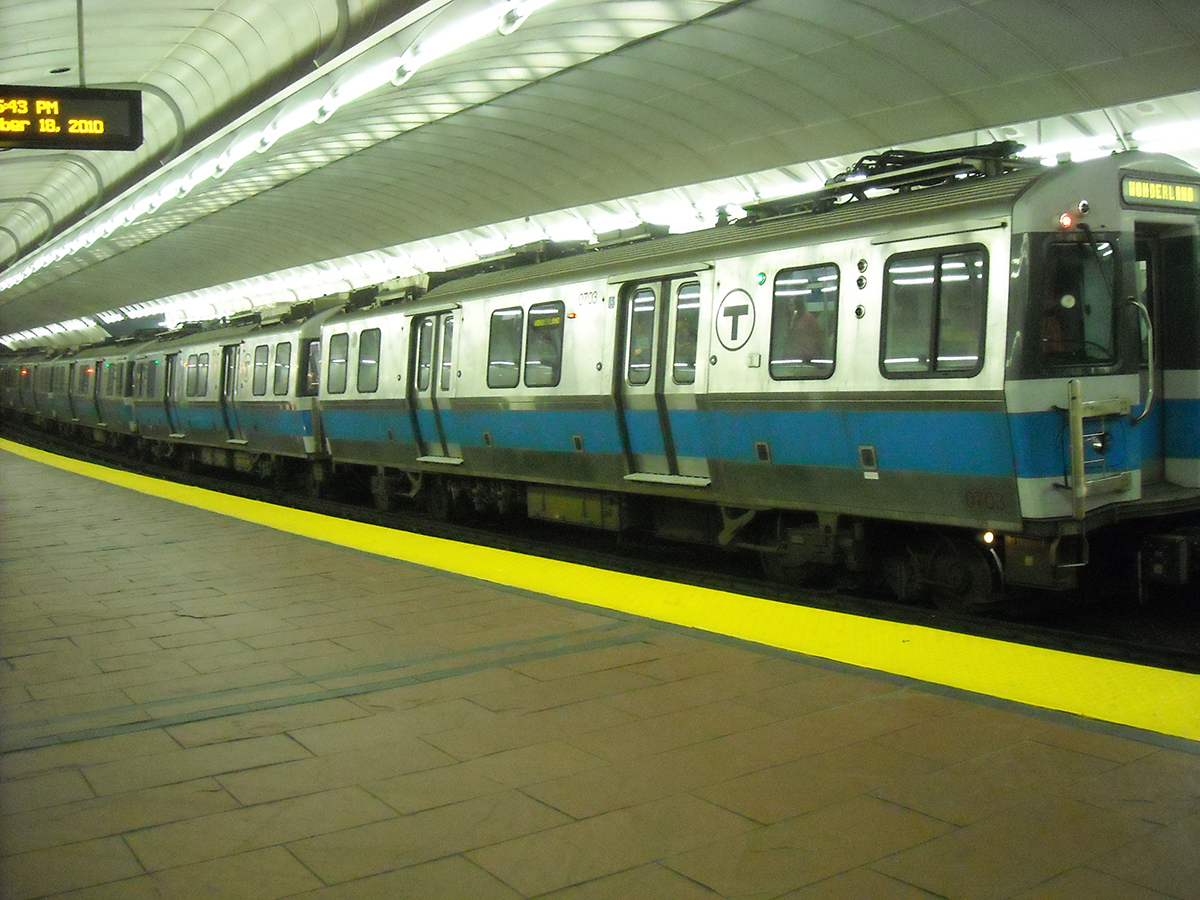Good Times, Bad Times for the MBTA’s Finances

A Blue Line Train At Aquarium Station By ericodeg via Flickr Creative Commons
The Massachusetts Bay Transportation Authority finally received some good financial news this week when they reviewed the latest advertising numbers.
The MBTA is set to generate $3.16 million in ad revenue during September, a record for a single month in their history.
To date, the cash strapped public entity has generated $25.4 million, eclipsing its total revenue in 2014 of $21.7 million.
Prior to this month, the best ever advertising month for the MBTA was October 2014 when they brought in $2.66 million. Last September, the MBTA generated just $2.15 million.
The new surge in revenue comes as geographically challenged students flood the city and pack the creaky train with their overstuffed backpacks. Of course, these students bring oodles of disposable income with them that companies want. The top five advertisers on the MBTA this month are Capitol One, Coca Cola, Primark, Verizon, and DraftKings.
MBTA Chief Administrator Brian Shortsleeve said the successful advertising efforts are bolstering the MBTA’s efforts to raise revenues through non-fare channels. The advertising is handle by
While new revenue is coming in, it’s nowhere near enough to solve the MBTA’s ongoing fiscal problems. On Wednesday, MBTA officials told reporters that the agency’s current $170 million gap in its operating budget is expected to grow to $427 million in the next four years.
The gap comes as a result of revenue growth not keeping up with expense growth. The recent increase in the state gas tax was seen as a measure by many to help plug the holes in the MBTA’s finances but it was repealed by voters at the ballot box in 2014. A new sales tax on computer and data processing services, commonly known as the “tech tax”, was designed to help pay for public transportation faced the wrath of the tech community and was repealed by the legislature in 2014.
A $242 million gap is expected in the MBTA’s next budget. According to the State House News Service this gap is the result of revenues only increasing at a rate of 1.6 percent per year while operating expenses rise at a rate of 4.4 percent.
All this comes at after the MBTA increased its state of good repair backlog from $6.7 billion to $7.3 billion and its plan to extend the Green Line to Medford is a billion over budget.


